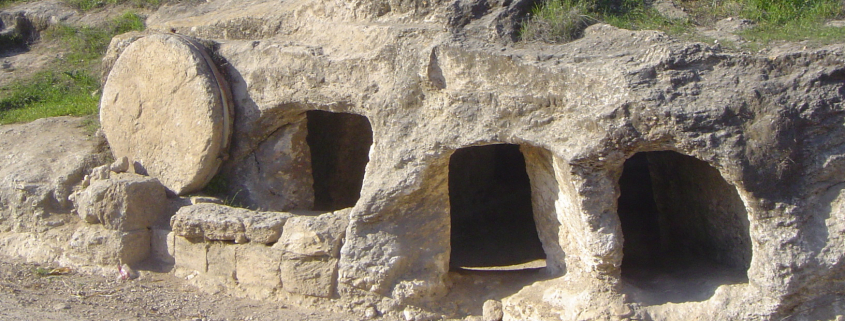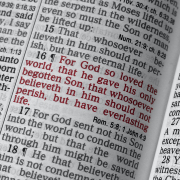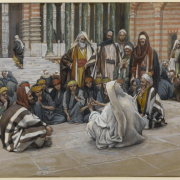Did Jesus Rise from the Dead?
This is one of the most important questions you could ever ask. If Jesus rose from the dead, then he is who he claimed to be—the Messiah of Israel and the Son of God. But if Jesus did not rise from the dead, then he should go down in history as just another false messiah. In other words, the truth of Yeshua-belief rises or falls on whether he rose from the dead. The Rabbi from Tarsus, Paul, wrote, “If Messiah has not been raised, your faith is futile” (1 Corinthians 15:17).
We believe our faith is not futile and that Jesus did indeed rise from the dead for two main reasons: his resurrection provides the best explanation of the historical facts, and his death and resurrection fulfill biblical prophecy. Virtually all New Testament scholars—religious and secular, Jewish and Gentile alike—agree that the following five things actually happened: (1) Jesus died by crucifixion, (2) the disciples sincerely believed Jesus rose from the dead and appeared to them, (3) the Jewish religious leader Paul, who strongly opposed the new Yeshua movement within Judaism, suddenly become a follower of Yeshua himself, (4) Yeshua’s brother James was a skeptic throughout Jesus’ life and ministry then suddenly came to believe Yeshua was the Messiah, and (5) the tomb was empty. Scholars have come to these conclusions on the basis of regular historical investigation, common to investigating any writings from antiquity. Why do they see these five events as historically reliable?
First, let’s look at the first historical claim: Jesus died by crucifixion. While his death on the tree is not only attested in the multiple Gospel accounts, it is also found in external sources such as the writings of the first century Jewish historian, Josephus, as well as Tacitus and the Talmud.1 The death of Jesus by crucifixion is one of the most well-attested events of history.
Second, historians almost unanimously agree that Yeshua’s disciples sincerely believed that he rose from the dead and that he appeared to them alive again. Whether or not this actually happened is for you to consider, but it is clear that Jesus’ followers at least sincerely believed that they witnessed a dead man alive again. Additional evidence of their sincerity may be found in their willingness to die martyr’s deaths for explaining what they witnessed. We have good historical evidence that almost all of Jesus’ disciples were brutally killed for proclaiming the risen Messiah.2 New Testament scholars Gary Habermas and Michael Licona explain the significance of this fact: “Modern martyrs act solely out of their trust in beliefs that others have taught them. The apostles died for holding to their own testimony that they had personally seen the risen Jesus. Contemporary martyrs die for what they believe to be true. The disciples of Jesus died for what they knew to be either true or false.”3 Thus their willing deaths have convinced historians that these disciples truly believed Yeshua rose from the dead.
Third, historians agree that the Jewish rabbi and Pharisee, Paul, experienced a dramatic transformation that led him from vehement opposer of followers of Yeshua to a devoted follower himself. What caused this dramatic shift? Paul claimed Jesus appeared to him on the road to Damascus (Acts 9). This experience with the risen Messiah cost him everything. He suffered persecution and eventually murder for telling Jews and Gentiles the good news of the Messiah’s coming.
Fourth, similar to the transformation of Paul, Yeshua’s brother James was an enemy of early Yeshua-belief. He did not believe his brother was the Messiah (John 7:5), and he was a devoted Jewish man opposed to Jesus’ message. But scholars agree that James too became a devout follower of Jesus, even to the point of accepting death by stoning for proclaiming his risen brother as the hope of Israel.
The last historical event—the empty tomb—is not as unanimously agreed upon as the former four events, but it is granted by an impressive 75 percent of scholars in the field.4 We have good reason to believe that Jesus’ tomb became empty after Jesus’ burial. It is unlikely that a new, Jewish, Messianic movement with a risen Messiah at the core of its message could have become so popular throughout Israel if Yeshua was still in the tomb. Only one thing would have been required to discredit the movement: opening the tomb to show a dead body inside. Jesus’ movement had many enemies in high places who could have done so if they had wanted. Instead, they claimed his disciples stole the body (Matthew 28:11–15), implicitly attesting to the fact his body was not there. In addition, the Gospel writers claimed women, including Jesus’ mother, discovered the empty tomb. If the disciples merely invented the story of the empty tomb, they would not have claimed women discovered it, since the testimony of women was not respected in Roman and Jewish culture and such a detail would reduce the credibility of their invented story.
Last, biblical prophecy foretold of a suffering Messiah who would die for his people’s sins and then rise from the dead. The Hebrew prophet Isaiah, in chapter 53, wrote that the Messiah would suffer and die as a substitute for Israel’s sins. But after he would die, Messiah would “prolong his days” (Isaiah 53:10). Remarkably, Isaiah wrote this prophecy more than 700 years before the death and resurrection of Yeshua, in whom this prophecy finds its perfect fulfillment.
We believe the most reasonable conclusion of the above facts is that Yeshua indeed rose from the dead. What do you think?
Footnotes
- Josephus, Antiquities 20.199–200, 18.63-4 (disputed). Tacitus, Annals 15.44. b. Sanhedrin 43a. The Arabic version of the disputed Josephus passage may be more reliable. Hebrew University scholar Shlomo Pines translated it as the following: “At this time there was a wise man who was called Jesus. And his conduct was good, and [he] was known to be virtuous. And many people from among the Jews and the other nations became his disciples. Pilate condemned him to be crucified and to die. And those who had become his disciples did not abandon his discipleship. They reported that he had appeared to them three days after his crucifixion and that he was alive; accordingly he was perhaps the Messiah concerning whom the prophets have recounted wonders.” Shlomo Pines, An Arabic Version of the Testimonium Flavianum and Its Implications (Jerusalem: Israel Academy of Sciences and Humanities, 1971), 16.
- Sean McDowell, The Fate of the Apostles: Examining the Martyrdom Accounts of the Closest Followers of Jesus (New York: Routledge, Taylor & Francis, 2016).
- Gary Habermas and Michael Licona, The Case for the Resurrection of Jesus (Grand Rapids: Kregel Publications, 2004), 59.
- Ibid., 70.

 Brian Crawford
Brian Crawford

 Public Domain
Public Domain

 Public Domain
Public Domain